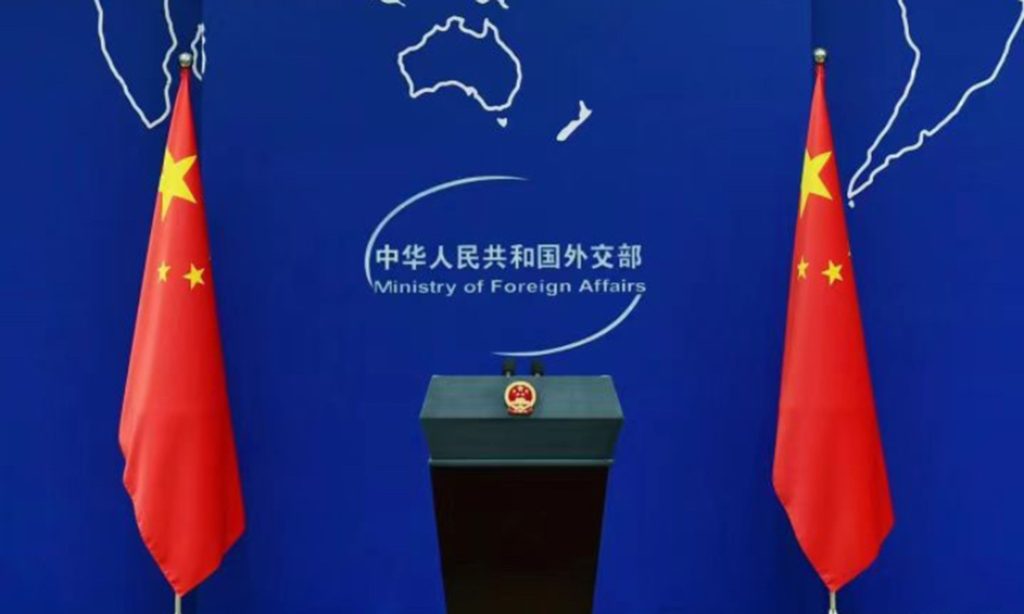Chinese FM announces sanctions on former Philippine senator Tolentino, experts say move is necessary and sends warning

China has decided to impose sanctions on former Philippines' senator Francis Tolentino for his egregious conduct on China-related issues and prohibit him from entering the Chinese mainland, Hong Kong and Macao, a Chinese Foreign Ministry spokesperson announced on Tuesday.
Chinese experts believe the sanctions are necessary and targeted, serving as a warning, since Tolentino's claims have seriously damaged China-Philippines relations and affected the lives of the Chinese community in the Philippines.
For quite some time, driven by selfish interests, a handful of anti-China politicians in the Philippines have made malicious remarks and moves on issues related to China that are detrimental to China's interests and China-Philippines relations. The Chinese government is firmly resolved to defend national sovereignty, security and development interests, said the spokesperson.
When asked to provide some specific examples of the "improper behavior" that led to Chinese sanctions, and more details as well as the reasons behind the sanctions, following the announcement the same day, another Chinese Foreign Ministry spokesperson Mao Ning said that the website of Chinese Foreign Ministry had released the sanction decision and elaborated on it, which you may refer to.
"Let me stress that there are consequences for hurting China's interests," Mao said.
Tolentino is one of the key figures behind the passage of the so-called "Act Declaring the Maritime Zones under the Jurisdiction of the Republic of the Philippines" in the Philippine Senate, newspaper Lianhe Zaobao reported.
With regard to the "Act Declaring the Maritime Zones under the Jurisdiction of the Republic of the Philippines" ("Maritime Zones Act") and the "Act Authorizing the President of the Philippines to Establish the Archipelagic Sea Lanes in Philippine Archipelagic Waters" ("Archipelagic Sea Lanes Act") announced by the Republic of the Philippines on November 8, 2024, the Chinese Foreign Ministry solemnly stated in November 2024 that the Philippine Maritime Zones Act illegally includes China's Huangyan Dao and most of the islands and reefs of China's Nansha Qundao and relevant waters into the maritime zones of the Philippines, and attempts to enshrine the illegal award of the South China Sea arbitration in the form of domestic legislation.
China strongly condemns and firmly rejects this as the move gravely infringes upon China's territorial sovereignty and maritime rights and interests in the South China Sea. China's territorial sovereignty and maritime rights and interests in the South China Sea shall by no means be affected by the enactment of the Act, said the statement.
Tolentino is the malicious driving force behind the so-called "Maritime Zones Act" pushed by the Philippines, which not only violates the United Nations Convention on the Law of the Sea but also contravenes the UN Charter and other relevant international laws, said Ding Duo, director of the Research Center for International and Regional Studies at the National Institute for South China Sea Studies.
Yang Xiao, an international strategy scholar who has long tracked issues in the South China Sea, told the Global Times on Tuesday that the South China Sea has been an integral part of China's territory and maritime rights since ancient times, and he believed that Tolentino's actions in promoting "Maritime Zones Act" are one of the reasons China decided to impose sanctions on him.
Tolentino, leveraging his family's political influence, holds considerable sway in Philippine politics and has long maintained an anti-China stance, Ding said, further noting that Tolentino has consistently actively pushed laws to support the illegal ruling of the South China Sea arbitration and consolidate the Philippines' illegal claims.
Yang noted that Tolentino has also been hyping up the so-called "China threat" narrative, interfering in China's affairs and stirring up fear of China among the Philippine elite.
According to a May report by Philippine media outlet Rappler, Tolentino claimed that the Philippine Senate should launch probes into suspicions of Chinese espionage and interference in the country's 2025 elections.
By presenting so-called evidence, he claimed that the Chinese Embassy in Manila hired a local public relations firm tasked with influencing public perception through fake social media accounts, while simultaneously attacking Philippine government policies seen as unfavorable to Beijing, the Straits Times reported in April.
In response to related inquiry, Chinese Foreign Ministry spokesperson Guo Jiakun stated that China follows the principle of non-interference in other countries' domestic affairs. We have no interest in interfering in Philippine elections.
"Tolentino has seriously damaged China-Philippines relations and shows no political integrity," Ding said, adding that Tolentino often attacks people with fair views on China, accusing them of "selling out" the Philippines to smear his political opponents.
China's sanctions are not simply in response to rhetoric, but are based on actual actions that have harmed China's sovereignty and development interests, and they serve as a legal countermeasure, Yang said.